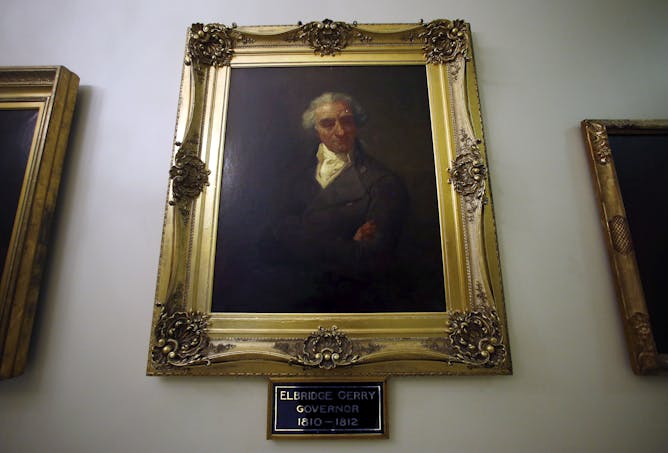
The word ‘gerrymandering’ comes from the name of Elbridge Gerry, Massachusetts governor in the 1800s.
AP Photo/Elise Amendola
Christopher Beem, Pennsylvania State University
Judges in North Carolina just threw out the state's congressional district map. The decision could have major implications for the future of partisan gerrymandering across the US.
|

Seriously cold: The ‘bomb cyclone’ freezes a fountain in New York City.
AP Photo/Mark Lennihan
Jennifer Francis, Rutgers University
An atmospheric scientist who studies the Arctic explains why – because of global warming – the U.S. may be in for longer cold spells in the winter.
|

Intersectionality in action: Brazilian women are organizing across class and race lines to decry inequality in a country that remains deeply ‘machista.’
Naco Doce/Reuters
Alvaro Jarrin, College of the Holy Cross; Kia Lilly Caldwell, University of North Carolina – Chapel Hill
Before #MeToo, Brazilian women launched #MyFirstHarrassment and marched for racial equality. Today, this feminist resurgence is tackling health care, plastic surgery, violence and more.
|
|
|
|
|
|
|
|
|
|
|
From our international editions
|
-
Rebecca Y. Bayeck, Pennsylvania State University
African board games are learning spaces for players to develop cognitive and non-cognitive skills given the mechanics or rules embedded in these games.
-
Matt Adcock, Data61
Upcoming innovations suggest that 2018 might be the year when the promise of augmented reality begins to be realised.
-
Michaela Edwards, Lancaster University
January prompts a spike in new job searches, but a new job is not necessarily the answer. Here's how work can give us the direction we need in difficult times.
|
|